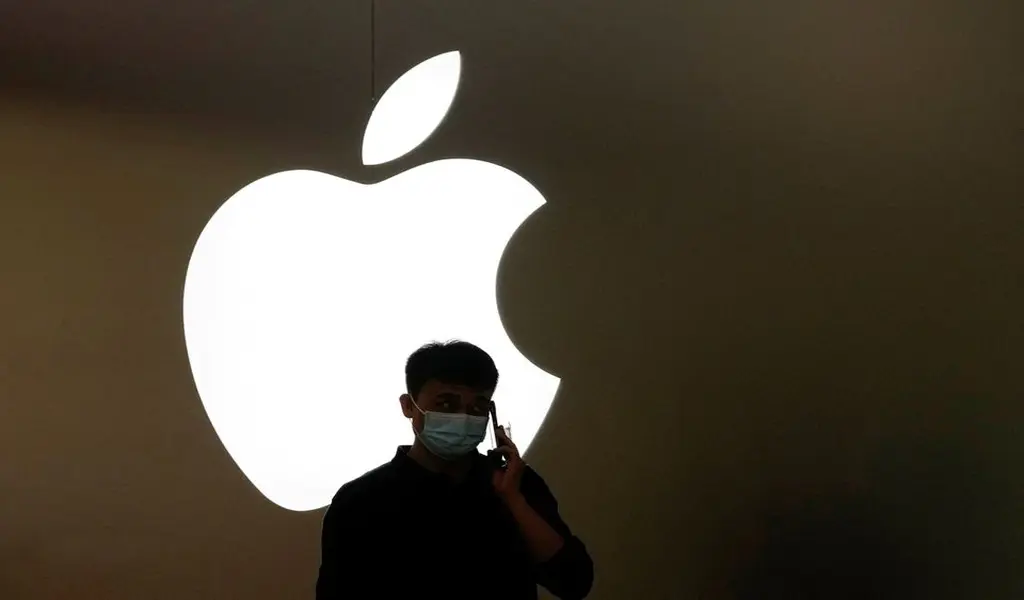(CTN News) – According to statistics from the company’s supply chain, Apple Inc.’s (AAPL.O) extensive exposure to Chinese manufacturing, known for its cheap prices and growing hazards, has decreased since the COVID-19 outbreak started.
Analysts anticipate the dangers – and Apple’s withdrawal – to increase as the world’s largest iPhone manufacturer, run by Foxconn (2317.TW) in central China, struggles with production deficits and labor discontent, primarily due to Beijing’s strict virus containment rules.
China’s influence in Apple’s worldwide production is waning, according to a Reuters study of the company’s supply chain data:
China was the principal location of 44% to 47% of its suppliers’ manufacturing locations in the five years leading up to 2019, but that number dropped to 41% in 2020 and 36% in 2021.
The data demonstrates how Apple and its suppliers are reshaping the global supply structure through a diversification drive, with investments in India and Vietnam and increased procurement from Taiwan, the United States, and other countries.
Analysts and academics predict that Apple will continue to be highly exposed to China for many years. Eli Friedman, an assistant professor at Cornell University who studies labor in China, said, “the China supply chain is not going to disappear suddenly.”
He said that decoupling was now unattainable for these businesses, but he anticipated that diversification would quicken.
Related: Apple has a Huge Problem With an iPhone Factory in China.
The concentration of suppliers in China, where Foxconn produces the majority of the world’s iPhones (70 percent), has been a vital component for Apple, the most successful smartphone manufacturer in the world.
However, the approach is changing due to escalating geopolitical and economic tensions between Beijing and Washington, which offer possible long-term dangers and China’s COVID-related lockdowns and limitations.
According to government sources with knowledge of the situation who spoke to Reuters earlier this month, Foxconn is speeding up its growth in India and has plans to treble the workforce at its iPhone manufacturing over the next two years.
In addition, J.P. Morgan predicts that by 2025, 25% of all Apple products, including Mac computers, iPads, Apple Watches, and AirPods, will be produced outside of China, up from 5% currently.
This includes moving about 5% of iPhone 14 production to India late this year and producing one in four iPhones. However, according to the Reuters study, no regions stand out as significant gainers to equal China’s fall in the Apple supplier data until 2021.
The largest growth was in the United States, which increased from 7.2% to 10.7% in 2021, followed by Taiwan, which increased from 6.7% to 9.5%.
India increased from less than 1% to less than 1%, maintaining a negligible presence, whereas Vietnam increased from 2.2% to 3.7%.
“China is neither Vietnam nor India. They are unable to create at that volume, with that level of quality, in that amount of time, and with a reliable infrastructure, “Friedman from Cornell University remarked.
More than 600 sites among Apple’s top suppliers are covered by its yearly statistics, which accounts for 98% of the company’s direct expenditure.
It is unknown how much money Apple spends with each supplier, and the firms that cut from among the hundreds of potential suppliers may change yearly.
In addition to providers of chips, glass, aluminum casings, wires, circuit boards, and other parts, they also comprise contract manufacturers that assemble watches, wireless headphones, iPhones, iPads, and other electronic devices.
Apple’s departure from China is becoming more obvious, as seen by its supply chain statistics, but the hazards associated with this concentration of operations are just as apparent.
The demands of Beijing’s COVID confinement policy, which mandates that employees be cut off from the outside world in closed-loop systems to maintain production lines, are largely to blame for the labor troubles at Foxconn’s China facility.
Investors concerned with production goals and human rights issues have become aware of the upheaval.
According to Pia Gisgard, head of sustainability and governance at Swedbank Robur, which owned Apple shares valued at around $1.3 billion as of end-September, according to Refinitiv data, “the essential thing is that the corporation executes these orders in a manner which respects people’s rights.”
Related CTN News:
Oil and Stocks Rise on Hopes of looser COVID Curbs in China: Markets Wrap








